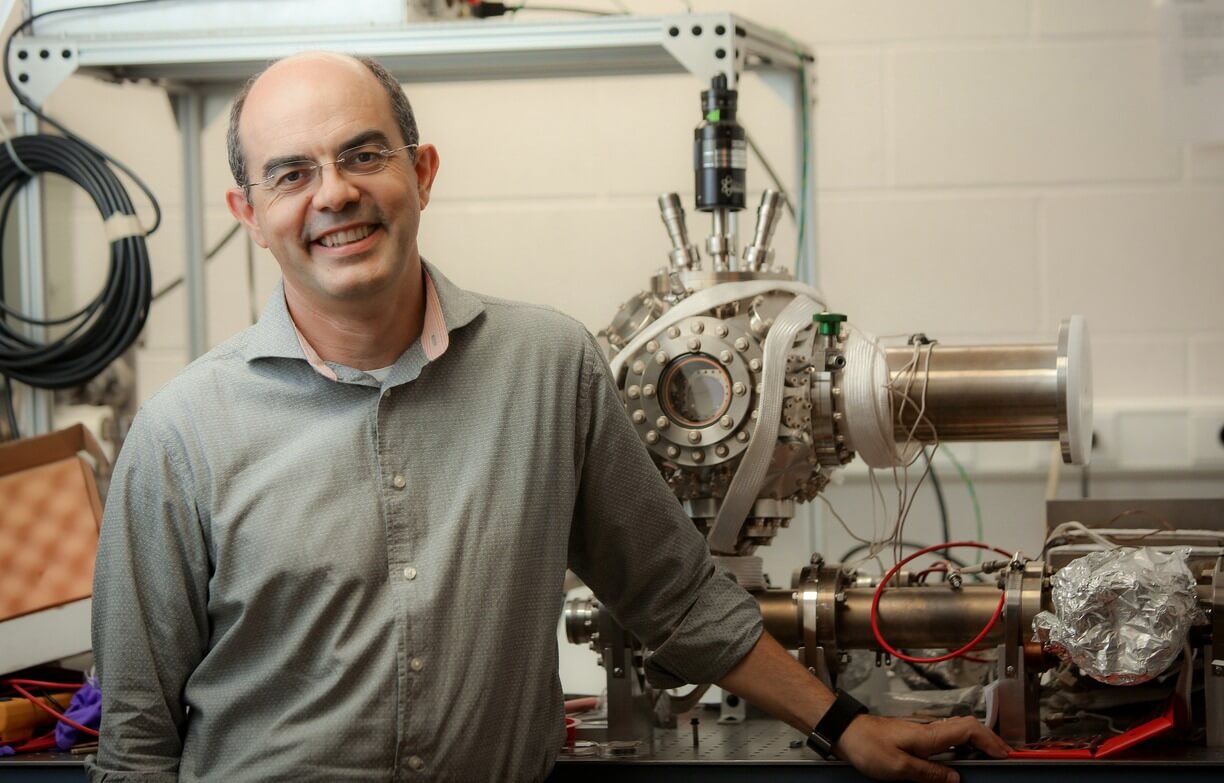
Physics Professor Phillippe Piot
NIU Physics Professor Philippe Piot has taken on a prominent role with the International Committee for Future Accelerators (ICFA).
ICFA facilitates international collaboration in the construction and use of accelerators for high energy physics, particularly the large accelerators that are at the heart of the field. Piot, an expert in both theoretical and experimental accelerator physics, has been named chair of the ICFA’s Panel on Advanced and Novel Accelerators.
“This is a great honor and responsibility for Dr. Piot,” said Gerald Blazey, vice president of NIU’s Division of Research and Innovation Partnerships. “The appointment speaks to the high level of respect Phillipe has with the international physics community, as well as to the strength of the NIU physics department.”
NIU has an active research program in particle-beam physics and particle accelerators technology. University faculty and students alike collaborate regularly with scientists at nearby Fermi National Accelerator Laboratory and Argonne National Laboratory, as well as at CERN, Europe’s premier research center in physics, and DESY in Germany.
Particle accelerators use electromagnetic fields to propel charged particles contained within in beams to high speeds. Cathode ray tubes found in old television sets, for example, served as particle accelerators. Today’s accelerators can be much more sophisticated and are often used in medical and industrial applications, with millions of hospital patients receiving accelerator-based diagnoses and therapies each year.
High powered and very large accelerators are used by scientists to explore the sub-atomic universe. CERN’s Large Hadron Collider (LHC) near Geneva, Switzerland, is the world’s largest and most powerful. It consists of a 17-mile ring of superconducting magnets with a number of accelerating structures to boost the energy of the particles along the way. LHC discoveries have shed light on how nature works at its most fundamental levels.
But such large accelerators require decades of planning and coordination involving international scientific and funding collaborations. The cost of LHC construction ran into the billions of dollars.
Professor Piot’s ICFA group is working to foster development and deployment of next-generation accelerators. Piot, who holds a joint appointment between NIU and Argonne, has contributed to work on the optimization of beam lines at top particle physics and basic-science laboratories across the globe. He also is affiliated with the university’s Northern Illinois Center for Accelerator and Detector Development, which supports the development of a new generation of accelerator and detector technologies.
“Over the last four years, ICFA’s Panel on Advanced and Novel Accelerators has worked to bring together the groups involved in the development of new accelerator technologies,” Piot said. Promising future technologies include a “wakefield” accelerator using a beam or laser to form a wake to accelerate particles, with an accelerating field several orders of magnitude larger than currently available in conventional accelerators.
“Our panel’s immediate focus is to promote and continue to encourage international collaboration,” Piot said. “We’ll be hosting mini-workshops on general topics critical to the deployment of
advanced and novel accelerators. In the long-term, we’ll continue to promote the need for integrated experiments that could eventually form the building blocks of newer technologies.”
Piot’s term as chair of the Panel on Advanced and Novel Accelerators began Nov. 1, and will run through the end of next year.
